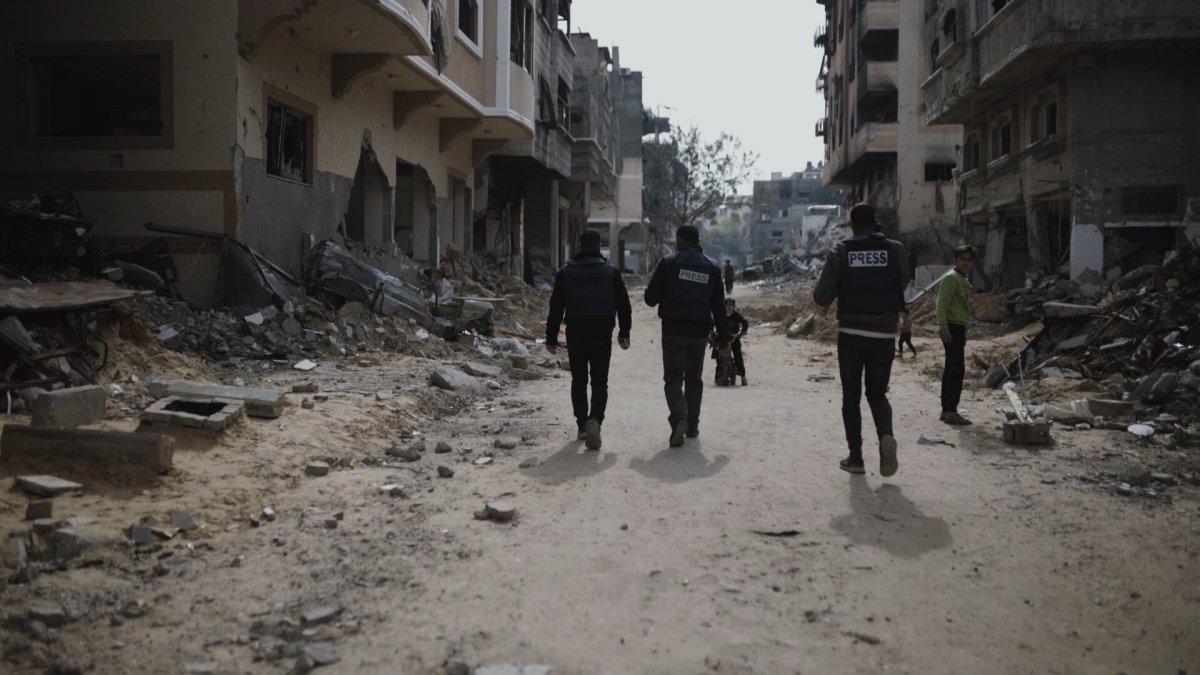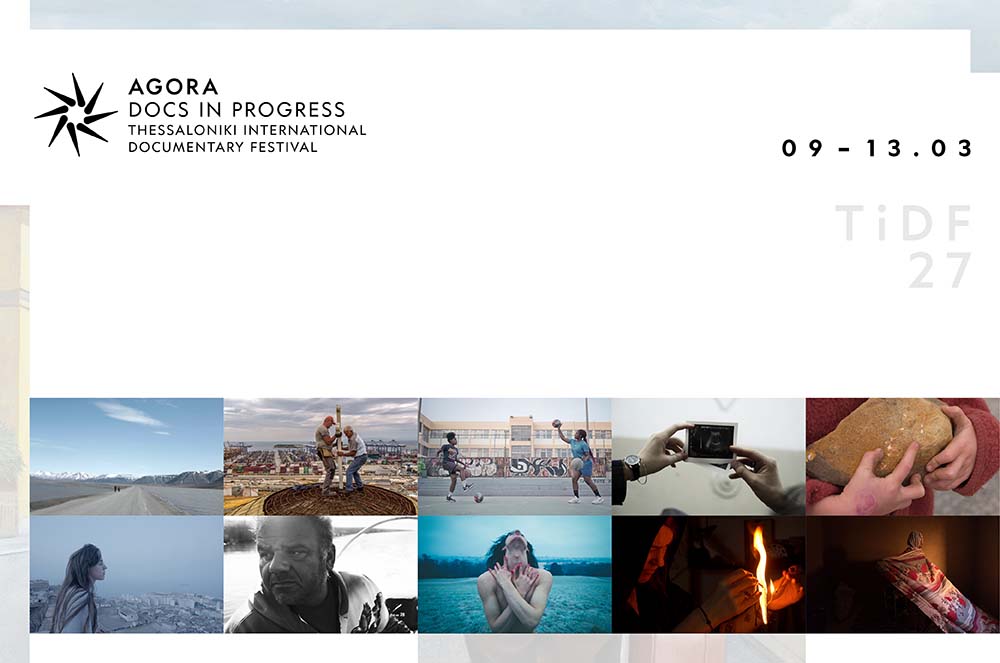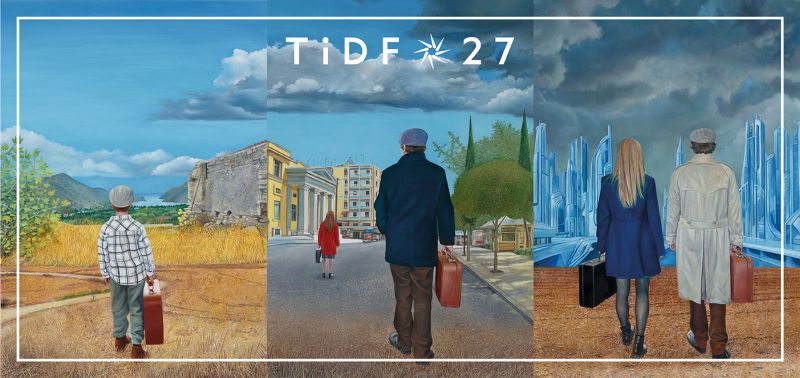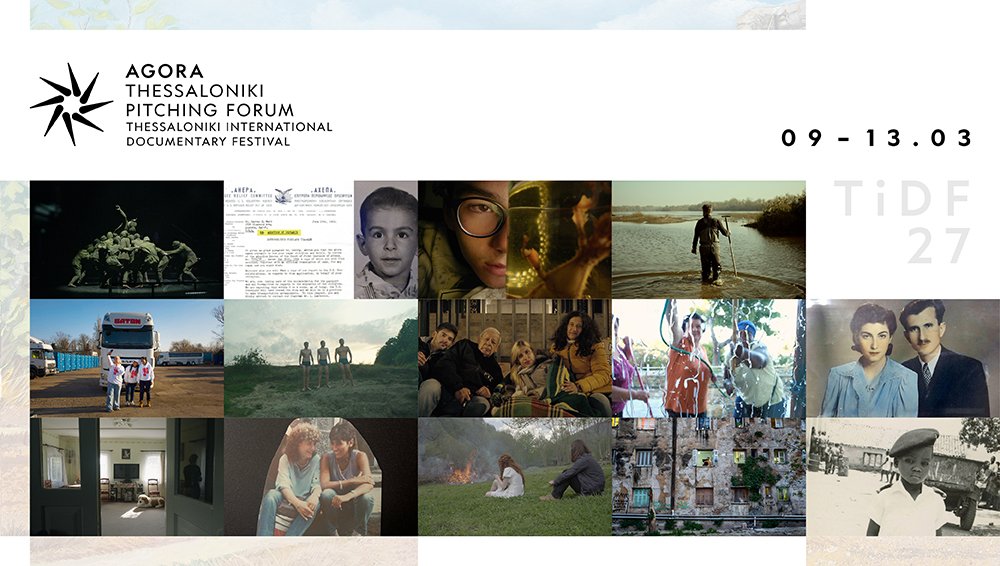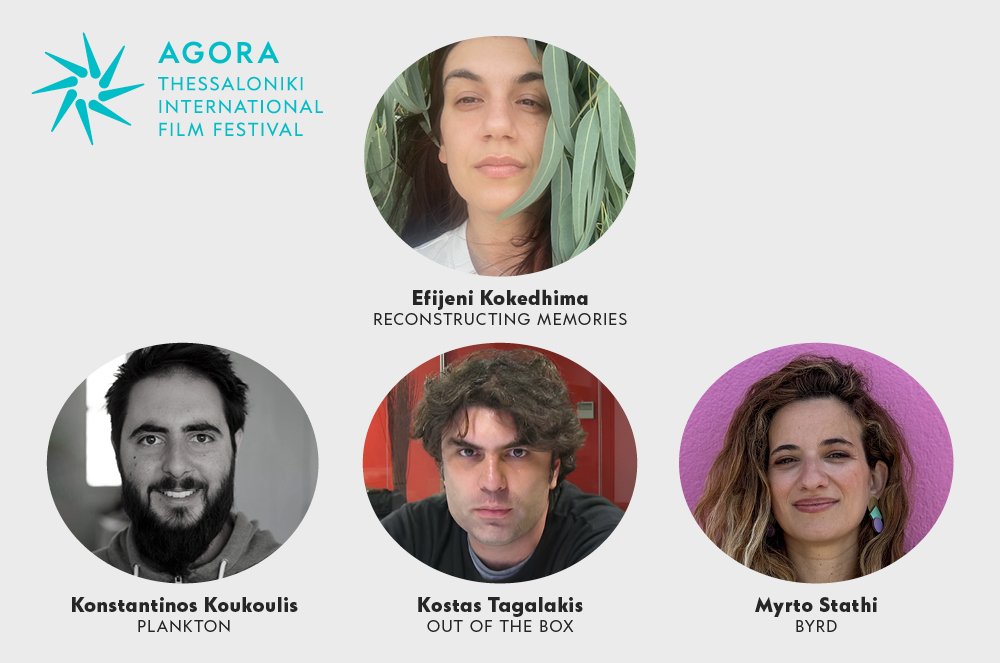Maria Cyber’s book, A Lesbian Life (To Rodakio publications), was presented on Saturday, March 16, at Frida Liappa theater. The publication includes 142 lesbian photographs, accompanied by various stand-alone, autobiographical short stories. Speaking about the book were Maria Cyber (photographer, activist), Krystalli Glyniadaki (poet and translator), Laskarina Liakakou (columnist and journalist), and Eva Xeugeni (editor-in-chief, womanlandia). The discussion was moderated by Filomeni Liatsa, spokesperson for Europride 2024.
Elise Jalladeau, the Festival’s General Director, welcomed the guests: “We are delighted that Maria Cyber, an old friend of the Festival, is presenting her book here. She is not only an activist, but a creator of many films, as well. I would also like to thank Filomeni for the following discussion.”
Immediately afterwards, the floor was taken by Filomeni Liatsa: “The presentation takes place within the framework of the 26th Documentary Festival’s tribute, Citizen Queer, aimed at supporting Europride 2024, but not only for that purpose. Europride is a great European event, with LGBTQI+ themes, organized this year by Thessaloniki Pride. Among the events that will be held between 21 and 29 June, we have also planned a photography exhibition with Maria Cyber to honor her work. As for the book A Lesbian Life, the abstract reads ‘a life full of adventures’ and I don't think it's misleading. It is a book, or better yet, an ode to lesbian visibility, and its path throughout time. An invaluable documentation of a historical retrospective through unique photographic material.”
She went on, adding: “Flipping through it for the first time - which I also did when I was younger when it first came out - I was swept up in a feeling of profound emotion, as I realized how much we have struggled as a community to be here today. To be able to move freely and share our art with other people. We must never forget that the great Maria Cyber was honored with the Arts and Letters Award from the French Ministry of Culture in May 2021. This particular book constitutes a historical treasure about the lesbian identity. The photographs in it, which are its essence, absorb you in the most positive way in this retrospective. Through our adventures, friendships and travels, a candid record of people, parties and festivals entice you into reliving stories from the community. That is, how the community itself managed to prevail against the darkness of the earlier years. To shed light on the community and its people, and subsequently to inspire the younger generations - such as the one I wish and hope to represent today - who are still fighting for, but more importantly honoring, those who came before them and continue to guide us in this fight. We owe a lot to them because ultimately, it's thanks to them we live freely. The book manages to masterfully provide visibility to the lesbian scene of the 80s, an obscure period for the most part, especially in Greece. Unveiling our identity, we seek people, photos, stories that offer a sense of belonging.”
Ms. Liatsa carried on: “Let the book take you on a journey, connect better with the lesbian terminology, even if you do not identify with it directly. The only requirement is the willpower to defend all that she stands for. This is the year of Europride Thessaloniki and we are doing everything possible to give voice to such stories and to significant and dynamic people in our midst. Most importantly, today we enjoy a wonderful discussion between extraordinary women with great achievements, who will also share their own perspective on this particular book.”
Maria Cyber took the floor: “I’d like to dedicate this presentation in memory of Katerina Mastoridou. The book is a photo album accompanied by short stories, some of which are very funny. I’d like to thank Afroditi Panagiotakou, Director of Culture of the Onassis Stegi and Onassis Foundation, who helped me realize this book. As soon as I told her about the book, she immediately took action. I've never met a person who has been so supportive before," Maria Cyber mentioned. According to her, "My photos stayed in the dark for several years because all my focus was on presenting and working on other projects. When I was diagnosed with cancer, I quit everything else and started going through my archive to get the book out. When I saw my material describing the generation I grew up in, that's when I said it should be published."
Then, she noted: “I didn't start out as an activist. My initial desire at fifteen was to kiss a woman. It was a rush and that's how I discovered it all. So, when I saw the archive, I said it had to come out into the light. In the book I wrote several stories. There are many I didn't include. One that I regret not putting in, is this one: I had come out of the closet through the newspaper Eleftherotypia’s magazine, Epsilon, and even with a photo. My mom didn't find out about it when the issue came out as she didn't read newspapers. The next Sunday a neighbor rang the doorbell and informed her. My mom comes crying into my room, and because the best defense is offense, I told her to leave me alone. She even woke up my brother, Tasos, to tell him. She was wondering how she would go to the bakery now as the mother of the lesbian. And at the end she said 'you're the lesbian, you'll go' and I thought it was one of the nicest quotes," she said, before adding: "As I was preparing the book, at night because I didn't know how to organize the photos. At first, we considered arranging them by country. But it didn't work out that way. I finally decided to start with the category of ‘The Joy Of a Lesbian,‘ and the rest followed. In the book, a lot of my Greek friends are included. And I thank them profoundly for that.”
The discussion continued with Krystalli Glyniadaki, who mentioned: “In August 2022, the phone rang at some point; it was Maria Cyber calling. She asked for my help in writing the book. To such propositions, you do not respond negatively. Every Wednesday after work we would meet up, and she would tell me all her stories, written in a short period of time. Maria is very humorous and I’d like to believe it shows in the text. Her proposal was an honor, I was very delighted to lent her my voice.”
“In her book, Maria deals with personal issues she herself has experienced, as well as the subject of family and community. Including queer, as well. It is a word that is now well and truly integrated into the LGBTQI+ vocabulary. It is an umbrella term describing a range of identities and capturing the non-normative. We owe it to a word which has become so deeply ingrained in our discussions, to examine what it advocates for and what it excludes. I have the feeling that a lesbian is not present in queer. It can't describe her politically because queer is a political word. It used to mean something offensive Even in queer we witness a hierarchy of things. Very often, the queer aesthetic is a phallic one. As Maria says at the end of her book, being able to use the word lesbian is a purely political act because within the safety of the generality that this word offers, there are many things included. To be able to say we are lesbians without rejecting queer is a contemporary and necessary act," Eva Xeugeni pointed out.
Laskarina Liakakou took the floor. “My introduction to Maria happened through a Facebook message. I have known her since the age of eleven when I wrote the word ‘lesbian’ on the internet for the very first time. I discovered the community much later. When I saw her name in my inbox, I was shocked. She asked me to talk about her book, and I love that it contains pictures of happy lesbians. Personally, I needed a lot of years to determine that a woman can be lesbian without necessarily being permanently unhappy. This particular piece of writing is important to me, and to the other lesbians I spoke with. It focuses not only on lesbianism as an identity and a sexuality, but also on impulsivity and adventure. This book will be a reference point for a woman who will grow up wanting to integrate into a lesbian culture that is not closed off and anti-social. The lesbian identity sometimes goes hand in hand with the concept of loneliness. To overcome it, you must get to know women – beacons, who will tell you how not to be afraid. Being a lesbian doesn’t stop you from being feminine. The ability to present yourself however you want is a very good reason to read the book.”
In response to a question posed by the audience regarding the visibility of lesbians, Maria Cyber said: “Things have changed, yet we still have a long way to go. Problems exist both within the community, and society, where the lesbian identity has been abolished.” For her part, Ms. Xeugeni noted: “When lesbianism has no sense of self defined by its own terms, you don’t know what is happening to you. You lose the verbal tools that can offer you a sense of community, and you feel alone.”
As for the term ‘queer’, Ms. Glyniadaki stressed: “I feel that I belong in the queer community as it is all-encompassing. The concept of ‘lesbian’ will not be eradicated, especially if you are aware of what you are.” Maria Cyber added: “In the ‘80s, we were hearing the word queer, which had fully political connotations, very often. It was during the AIDS period, that's when it started to appear, the term queer, which included everybody, in the sense that everybody can have a quirky, a queer behavior towards society. Now the word has become our bread and butter, and it is not used correctly – at least in Greece.” In regards to how easy it is for such a book to be published, Maria Cyber stated: “Publishing houses have no funds, and a photo book is even harder to publish because it costs more.” Following the discussion, the nationwide premiere of the films Dildo Riot (2021) and Rebel Dykes (2021) took place.









